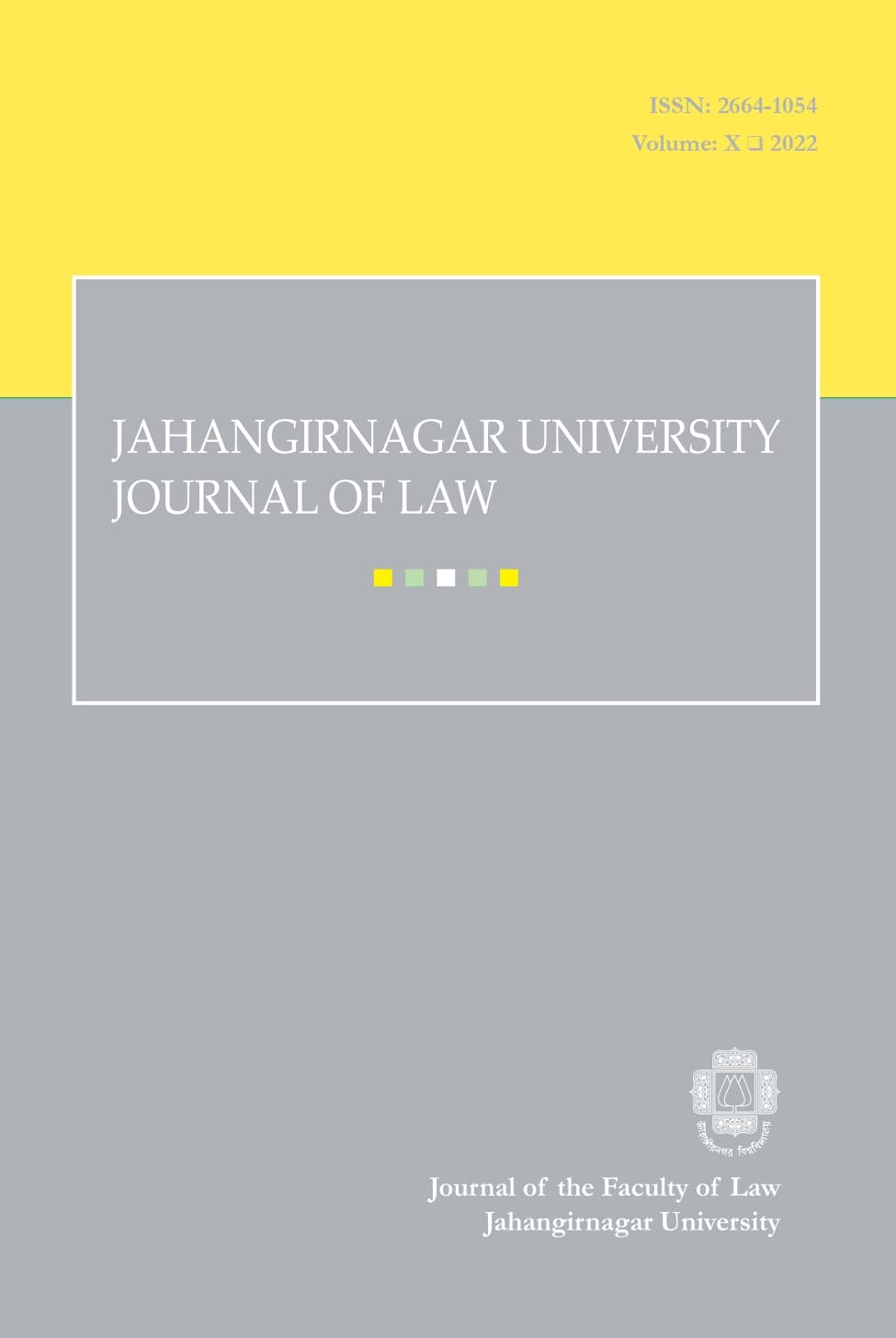The Admissibility of Electronic Evidence and its Impending Challenges in Bangladesh: A Comprehensive Study
Main Article Content
Abstract
It is well experienced that human civilization is now in an era where everything is digitalizing and shifting towards electronic means and internetbased like e-mail, e-judiciary, e-communication, online shopping, online classes, and many more. Consequently, most of the disputes are now connected with these e-forums. Besides, in the fast technological advancement, most of the facts are being recorded through internet-based technologies such as audio-video recording and photo taking through cell phones, CCTV footage, etc. To solve these disagreements, investigation authorities often need to consider various types of e-evidences that include both analog electronic and digital electronic evidence. The Evidence Act 1872, which is ancient colonial legislation, does not comply with the current needs. Against this backdrop, this study aims to examine the justification of the present eminence of admissibility of e-evidences in our investigations and inquiries under the general and special laws on evidence. Also, this research will examine the lacunae in the existing legislation and practices and will provide some prospective recommendations. This will also be within the periphery of this research to chalk out the impendent challenges faced by our judiciary in adopting e-evidences.

